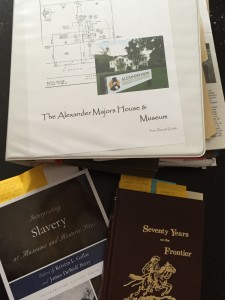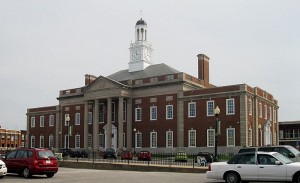Prior to writing the finding aid for the Michael Davis Papers, I researched the collection’s contents and learned that Michael Davis was the chairman of the Committee for the Nation’s Health (CNH) during Harry Truman’s presidency. The CNH supported Truman’s national health insurance initiative and campaigned against organizations that opposed the program, such as the American Medical Association. Most of the collection contained publications, articles, press releases, and newsletters from the CNH and opposing organizations.
Once I had a thorough understanding of the collection, I began my description. First, I described the collection as a whole by summarizing the types of documents it contained and the collection’s primary subjects and themes. I also provided the historical context of the collection and explained how the collection related to Harry Truman. My series description was brief because there was only one series, the Subject File. Again, I outlined the types of documents and the subject matter of the series, along with the series’ arrangement. Lastly, I described the collection at the file unit level by listing the folder titles for each box in the collection.
There was other essential information I included in the finding aid, such as copyright information and information about the collection’s size and date span. I also needed to compose a biographical sketch of Michael Davis’s life, which proved difficult because the collection had little information about him. However, after some research in the archive, I was able to create a timeline of Michael Davis’s education and employment history. My final step was to write the HTML webpage for the finding aid using a program called Dreamweaver. As a HTML document, the finding aid was added to the Truman Library’s website where it is now available to researchers.



